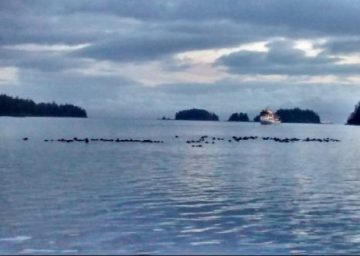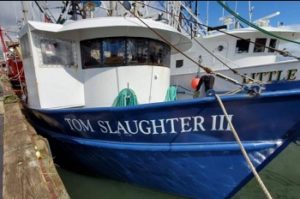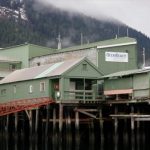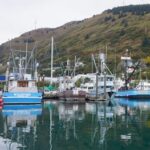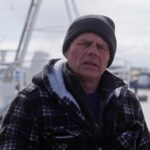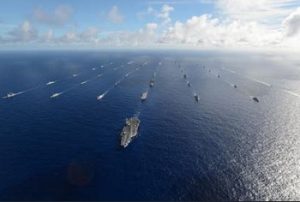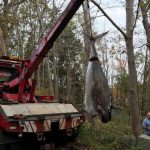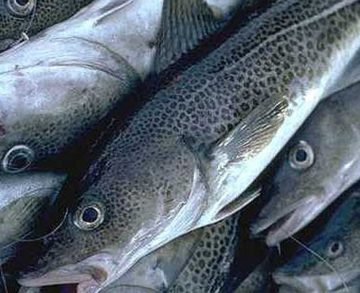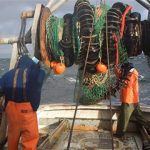Monthly Archives: January 2018

FISH-NL – Solidarity isn’t forever with FFAW/Unifor so much as when it suits them
The Federation of Independent Sea Harvesters of Newfoundland and Labrador (FISH-NL) says Unifor’s reasoning for its break from the Canadian Labour Congress (CLC) is nothing short of ironic and hypocritical. “Unifor, the largest private-sector union in Canada, is splitting from the CLC over a disagreement about the rights of workers to choose what union should represent them, while one of its affiliate unions, the FFAW, has blocked the province’s inshore harvesters for 13 months from voting on their union fate,” says Ryan Cleary, President of FISH-NL. >click here to read< 14:41
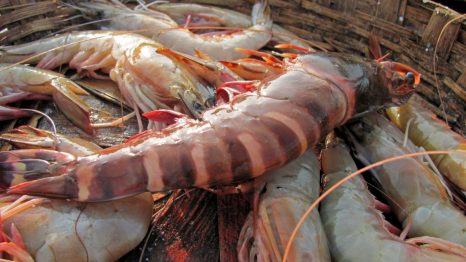
Invasive Shrimp Grows to More Than a Pound in TX Waters
Did you know there are shrimp in Texas that can grow to weigh more than a pound? The black tiger prawn (Penaeus monodon) or tiger shrimp is an aggressive mollusk that can grow to a foot in length and weigh a pound according to Texas Invasive Species Institute. “In addition to it’s unusually large size, it can be identified by black stripes across the dorsal side of the tail. It can also be black in body color with orange stripes on it’s back, resembling a tiger.” >click here to read< 13:06

Lawsuit filed to save North Atlantic Right Whales from death in fishing gear
Today’s lawsuit against the National Marine Fisheries Service, filed in federal court in Washington, D.C., alleges that federal management of the American lobster fishery violates the Endangered Species Act and the Marine Mammal Protection Act. The lawsuit seeks to force the agency to sufficiently examine the fishery’s impacts on North Atlantic right whales and adopt additional measures to prevent more entanglements in the future. The lobster fishery is the most active fixed-gear fishery in the northeastern United States. >click here to read< 12:08 
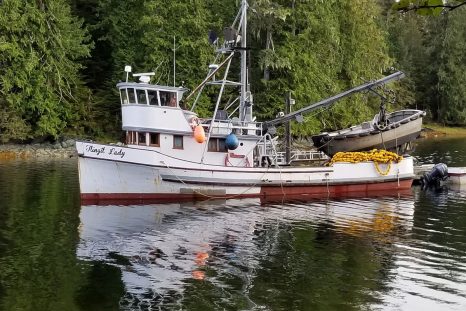
Alaska commercial fisherman who robbed creeks of spawning salmon forfeits boat and gear
An Alaska commercial fisherman who prosecutors say robbed creeks of salmon heading to spawning grounds has lost his fishing vessel, nets, skiff and other gear, under a sentence imposed last week in Prince of Wales District Court. Curtis Demmert, now 32 of Klawock, was fishing in Coco Harbor, on Dall Island to the west of Prince of Wales Island in Southeast Alaska, according to the charging document and other court filings. >click here to read< 09:24
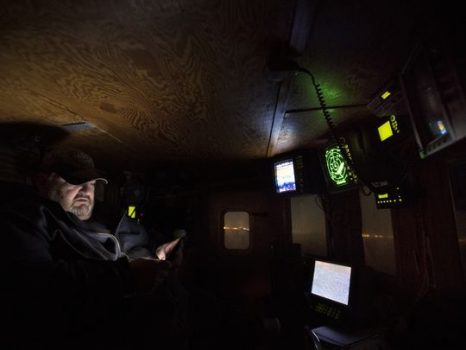
On a dangerous trip, New Jersey fishermen struggle to hold on
It was 10 degrees outside, a blizzard was on its way, and Roy Deal was in no mood to fish. Deal sat in the blue captain’s chair in the wheelhouse of the Donna Lynn, his 60-foot fishing boat, and felt cold air penetrating cracks in the glass. He passed the seawall at 3:55 a.m. Three hours to sunrise. Deal gave the wheel a hard half-spin. The Donna Lynn pitched to starboard, away from the lights of Manhattan. Deal held the turn till his bow pointed north and east, into the black Atlantic. This trip would be dangerous. The pay would be low. And Deal was feeling grumpy. >click here to read< 08:37
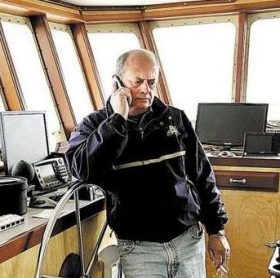
The government is what created Carlos Rafael
Bill Straus saw the writing on the wall years ago. In 2009 -eight years before Carlos Rafael went to prison – the representative of Bristol’s 10th District spoke out during the establishment of the current catch-share system in the Northeast fishery. And even with Rafael behind bars, Straus says the threat of another Codfather emerging is ever present. “The risk is still there,” Straus said. “And that’s why what comes out of the different remedies is so important. >click here to read< 22:52
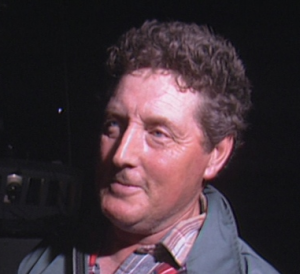
Fishing captain who helped save Tamil refugees passes away
Gus Dalton, a fishing captain who was by most accounts — including his own — an accidental hero for saving the lives of more than 150 Tamil refugees off southern Newfoundland, has died. He was 87. Dalton made international headlines in August 1986 when a routine fishing trip on a foggy evening took a fateful turn. Scores of Sri Lankan Tamil refugees may have perished had it not been for Dalton, who came across their open boats about six miles off St. Shott’s, on the southern tip of Newfoundland’s Avalon Peninsula. >click here to read< 19:39
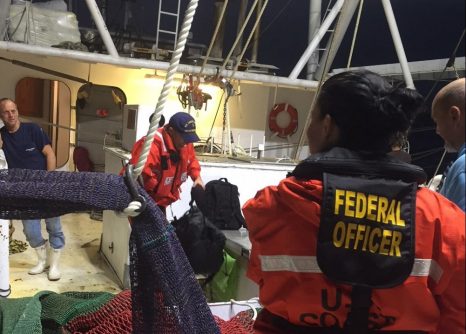
Coast Guard, NOAA seize illegal shrimp catch
The Coast Guard and National Oceanic and Atmospheric Administration seized approximately 6,000 pounds of shrimp with an estimated price of $60,000 from the 68-foot fishing vessel Ronald E. near the Dry Tortugas Shrimp Sanctuary Preservation Area, Friday. The vessel Ronald E. was observed fishing inside the marine sanctuary and was boarded by a Coast Guard Cutter Raymond Evans and NOAA joint boarding team. The boarding team cited the vessel for illegally fishing inside a national marine sanctuary and safety violations. >click here to read< 17:10 
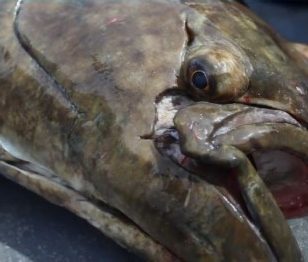
Homer halibut fishermen facing more competition from the East Coast
The International Halibut Commission, or the IPHC, will kick off its annual meeting in Portland Monday. The international regulatory body is expected to slash the total allowable catch of halibut on the West Coast by 24 percent due to declining stocks. With potentially less Pacific halibut on the market, prices are likely to increase, but a new direct competitor on the East Coast may hamper the market’s ability to compensate for lower halibut stocks in Alaska. >click here to read< 16:33

Crabbers set to snap – Frustrations mount as price deadlock and towering swells delay season
Frustrations grew Tuesday as crabbers and processors continued drawn-out negotiations over 2018’s opening price for Dungeness crab. All was silent in the Ilwaco channel and Port of Chinook in recent days when boats ordinarily would have been noisily traveling back and forth to crabbing grounds. No lights bobbed on the ocean off the Long Beach Peninsula. Commercial crab harvesting was set to open Monday south of the Klipsan Beach line, but price negotiations and ocean conditions are keeping boats in port. >click here to read<15:08
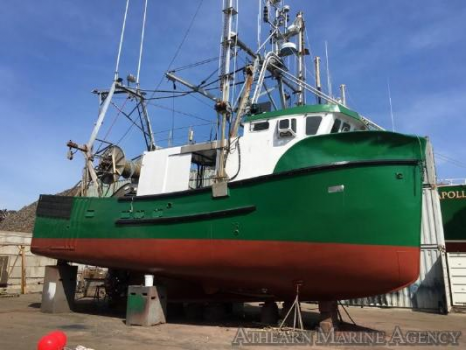
Athearn Marine Agency Boat of the Week: 50′ x 20′ Fiberglass Trawler/Scalloper, 6 Cylinder CAT C18, Perkins – 24 KW, Permits
Specifications, information and 57 photos click here To see all the boats in this series, Click here14:00
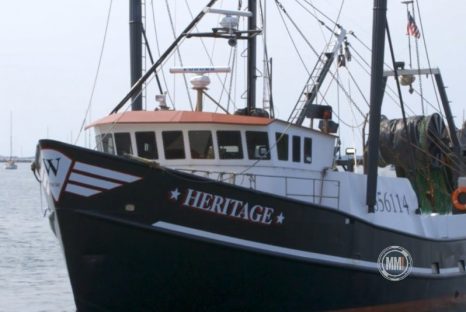
Michelle Malkin Investigates – Fishing Wars | Drowning in Regulations
Commercial fishing boats in New England are going under at an alarming rate, and hard-working families are being demonized by a multimillion-dollar environmental industry whose only product to sell is fear. In this episode, Michelle Malkin travels to the Northeast to hear the stories of people in the fishing industry who are drowning in government regulations. >Watch the full version, click here< 13:25
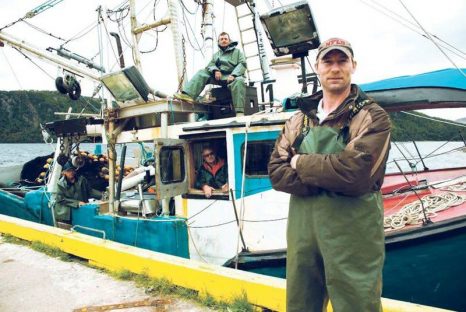
Port Saunders fisherman Conway Caines says survey discriminated against him because of his job
Port Saunders fisherman Conway Caines claims he was denied the opportunity to voice his opinion in a survey because of his occupation. Caines reached out to the Northern Pen on Monday, Jan. 8 to voice his frustration after he agreed to do a survey conducted by phone on Saturday, Jan. 6. He says the survey was regarding the economy of Newfoundland and Labrador, a topic on which he wished to express his opinions. But Caines says when he revealed to the surveyor that he was a fisherman, she informed him he was ineligible to complete the survey. >click here to read< 13:14 
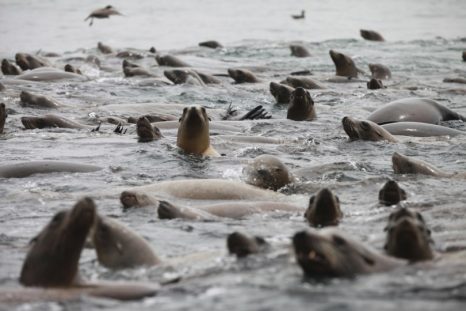
A quarter million?! California sea lion population has tripled, new study finds
The West Coast’s population of California sea lions — the playful marine animals that delight tourists on the Santa Cruz waterfront and San Francisco’s Fisherman’s Wharf while competing with salmon fishermen for valuable catches — has tripled in the past 40 years to more than 250,000.,,, But California sea lions — which range from Mexico to Alaska — have exploded the most in number, jumping from an estimated 88,924 in 1975 to 257,606 in 2014, according to the new NOAA study. But all the sea lions have caused problems. >click here to read<11:33
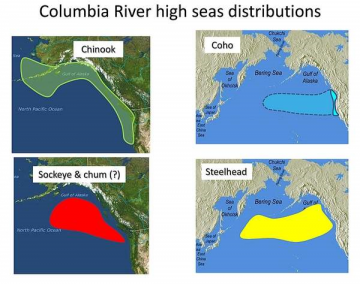
Ghost of ‘the Blob’ haunts Pacific salmon
The initial period after ocean entry for Columbia River basin juvenile salmon and steelhead is when most of the mortality occurs during their lives at sea, so ocean conditions — temperatures and nutrient supplies — during that period are critical to how many of the fish will return to the river as adults one to three years later. The path the fish take after they enter the ocean makes a difference, according Laurie Weitkamp of NOAA Fisheries’ Northwest Fisheries Science Center, Newport Field Station, especially lately with the “strange” ocean conditions. >click here to read< 10:31
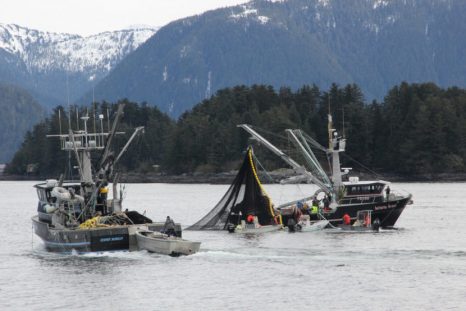
Alaska Board of Fish gets earful on herring, salmon proposals
More than 200 people turned out in Sitka to testify about herring and salmon fisheries in front of the Alaska Board of Fisheries on Tuesday. And about two-thirds of those who spoke were concerned over the commercial management of the Sitka sac roe herring fishery. The herring industry wants to maintain the status quo. Fishermen and processors expressed support for the methods used by the Alaska Department of Fish and Game to predict how many herring they can safely harvest. >click here to read< 09:38
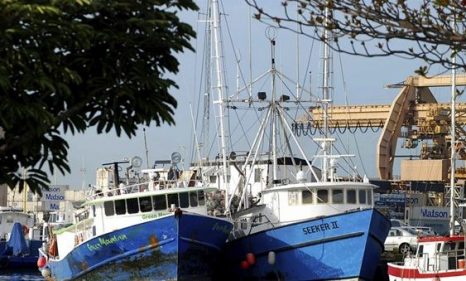
Big Brother on America’s Fishing Boats
Salt water. Seagulls. Striped bass. My fondest childhood memories come from fishing with my dad on the creaky piers and slick jetties of the Jersey shore. The Atlantic Ocean is in my blood. So when fishing families in New England reached out to me for help spreading word about their economic and regulatory struggles, I immediately heeded their call. Now, these “forgotten men and women” of America hope the Trump administration will listen. And act. >click here to read< 08:37

DFO minister: No compromise on independence of inshore fishery
Canada’s Minister of Fisheries and Oceans says there will be no backtracking on measures to preserve the independence of Atlantic Canada’s inshore fishery.”I’m not interested in weakening or diluting these policies,” Dominic LeBlanc told CBC News in a wide-ranging interview Tuesday. LeBlanc was responding for the first time to overtures from lobster buyers and plant owners in southwestern Nova Scotia who have floated schemes that would allow the companies ownership of a fisherman’s catch while somehow maintaining the independence of the fisherman.,,LeBlanc declined to discuss the impact on Atlantic Canada’s seafood exports to the United States in the event the Trump administration pulls out of the North American Free Trade Agreement. >click here to read<21:29 
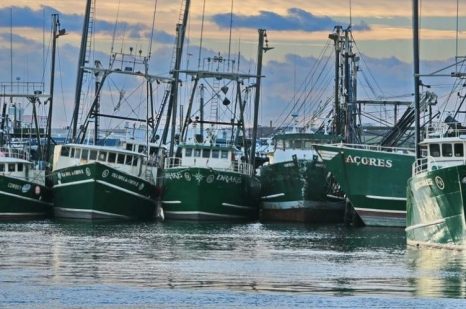
300 jobs lost in first month of NOAA’s Sector XI groundfishing ban
Nearly two months have passed since NOAA imposed a groundfishing an on Carlos Rafael’s fleet. Those within the Port of New Bedford estimate it’s put upward of 80 fishermen out of work. That number merely only scratches the surface according to a study done by SMAST professor Dan Georgianna. Within the first 30 days of the ban, Georgianna estimates that across the Northeast 300 jobs were lost, with an income loss of about $5.7 million. When including the retail loss the number surges to $12 million. >click here to read<19:26
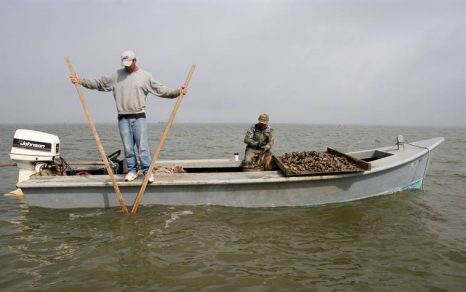
Local leaders encouraged by water wars arguments in U.S. Supreme Court hearing
Florida lawyers fared well in last week’s U.S. Supreme Court hearing on the “water wars” between the state and Georgia, officials who sat through the hearing said. Rep. Neal Dunn, who was among them, said he felt Florida has a real shot of winning the case.,, “Georgia came off some pretty harsh questioning – a lot of harsh interrogatories, and a lot of apparent disbelief on the part of the justices in what they were hearing from Georgia.”,,, Florida says a steady supply of water is the last chance for Apalachicola Bay’s struggling oyster industry and endangered species. >click here to read< 17:45
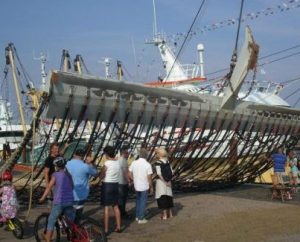
Dutch trawlers may face pulse fishing ban as EU parliament says no
The European parliament on Tuesday voted in favour of a ban on pulse fishing, a decision which it will use in negotiations with the European Commission and which will have a major impact on the Dutch fishing industry, if implemented. Opponents of the system say it is a cruel and unnecessary method of fishing. It involves sending a current of electricity through sections of the sea bed, partially stunning sole and plaice and forcing some into the net. >click here to read< 16:49
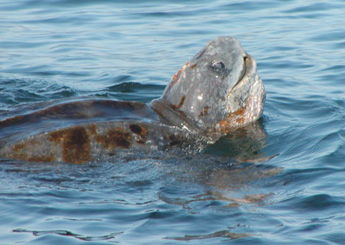
World’s largest sea turtle could come off ‘endangered’ list
An arm of the National Oceanic and Atmospheric Administration has received a petition from a fishing group asking that the Northwest Atlantic Ocean’s leatherback sea turtles be listed as “threatened,” but not endangered, under the Endangered Species Act.,,, NOAA officials have said the agency has reviewed the petition from New Jersey-based Blue Water Fishermen’s Association and found “substantial scientific and commercial information” that the move might be warranted. The agency now has about eight months to make a decision about the status of the turtles. >click here to read< 13:56

Nautic Alert to Safeguard Commercial Fisherman and Assets With Their New Upcoming VMS Type-Approved Insight X2
Nautic Alert just unveiled one of the most technologically-advanced marine monitoring, tracking, safety and security system designed specifically for yachts, and now has some really exciting news for commercial fisherman. Nautic Alert will be releasing a VMS type-approved Insight which will not only bring NOAA tracking to fisherman, but also unmatched security and safety protection with the industry’s first SMART bilge controller, microwave and radar-based intrusion detection, and man-overboard with global emergency monitoring. Nautic Alert is an EDGE-based system with onboard learning intelligence designed to provide early detection of critical systems. >click here to read< 13:16 

Western Gulf fishermen bristle at other P.E.I. fisheries group resolution
The Western Gulf Fishermen’s Association has answered back to the Prince County Fishermen’s Association. Last week the PCFA voted in favour of a sending a motion to the annual meeting of the Prince Edward Island Fishermen’s Association next month in Charlottetown, calling on all lobster advisory committees in the province to work towards a uniform lobster carapace size. >click here to read< 11:43
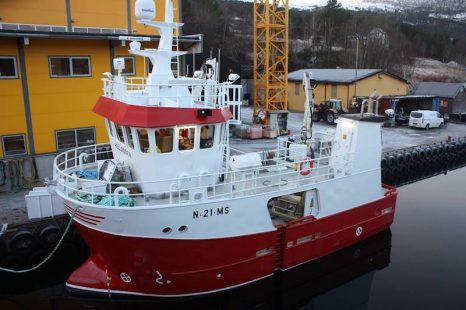
Super-Sjark seine netter for Lofoten
Rolf-Inge Johansen ordered the new vessel from Sletta Verft, having sold his previous 1977-built, 38 metre Hellodden in 2016 to a Spanish company to fish off western Africa. Its replacement is a compact 14.90 metre LOA by 6.50 metre beam seine netter of the same name. The new Hellodden follows the current trend in Norway for compact fishing vessels under 15 metres, with a large beam and plenty of height, providing a fishing platform that would previously have only been possible with a considerably larger vessel. >click here to read< 11:11

Board votes down change in Southeast Dungeness crab season
Crabber Max Worhatch proposed the change and successfully got the board to add the proposal to the meeting after missing the deadline for regulation changes.“I would like to seriously consider this,” Worhatch told the board. “I put a proposal in, just like this three years ago, didn’t get anywhere. The department felt like they had to have something to manage the fishery when it got to the low end. But in my experience and just from what I’ve seen in Oregon, California and Washington, size sex and season for Dungeness crab works and it works extremely well. It’s kindof an autopilot thing, doesn’t take a lot of work.” >click here to read< 10:22
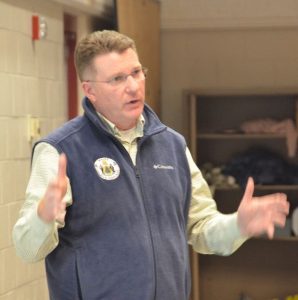
Maine Lobstermen reject big changes in harvester reporting rules
Ask any lobsterman about the details of where and how he catches his bugs — what kind of bait he uses, how deep he sets his gear, how many traps on a trawl, how long those traps soak between hauls — and you’re likely to get a fisheye, if not a poke in the nose, in response. Still, that’s the kind of information the Atlantic States Marine Fisheries Commission wants to collect from lobstermen and Jonah crab fishermen working in the Gulf of Maine and, no surprise, the idea is unpopular. >click here to read<08:59
Maine opposing push to require all lobstermen to report catch data – >click here to read<
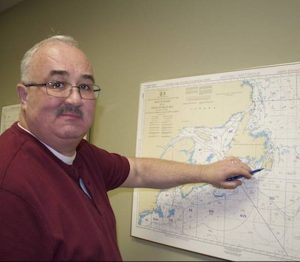
DFO rep says agenda for meetings to be determined by fishers
There’s nothing to restrict fishers from talking about issues they have regarding fisheries management, rules and regulations at upcoming meetings scheduled by the Department of Fisheries and Oceans (DFO). DFO representatives will be in Central and Eastern Newfoundland over the next couple of weeks — starting in Baie Verte on Jan. 16 and ending in Petty Harbour on Jan. 25 — to meet with fishers. Locations, times and dates >click here to read< 20:31 
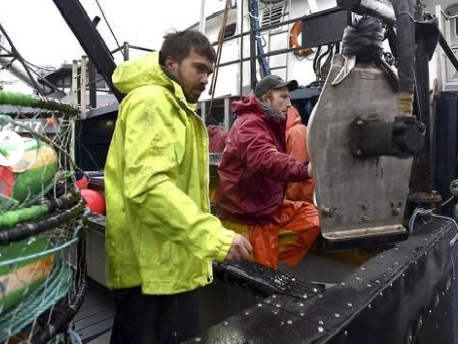
Price talks delay Dungeness crab season
Crab boats loaded with pots sat at the docks all weekend while fishermen and processors remained in a gridlock over prices. The commercial Dungeness crab season was set to open Monday in most of Oregon and Washington state, but price negotiations and ocean conditions are keeping boats at home.,,, At one point major processors had offered crabbers $2.30 a pound — not nearly enough to convince them to go out, local crabbers said. >click here to read< 14:12






